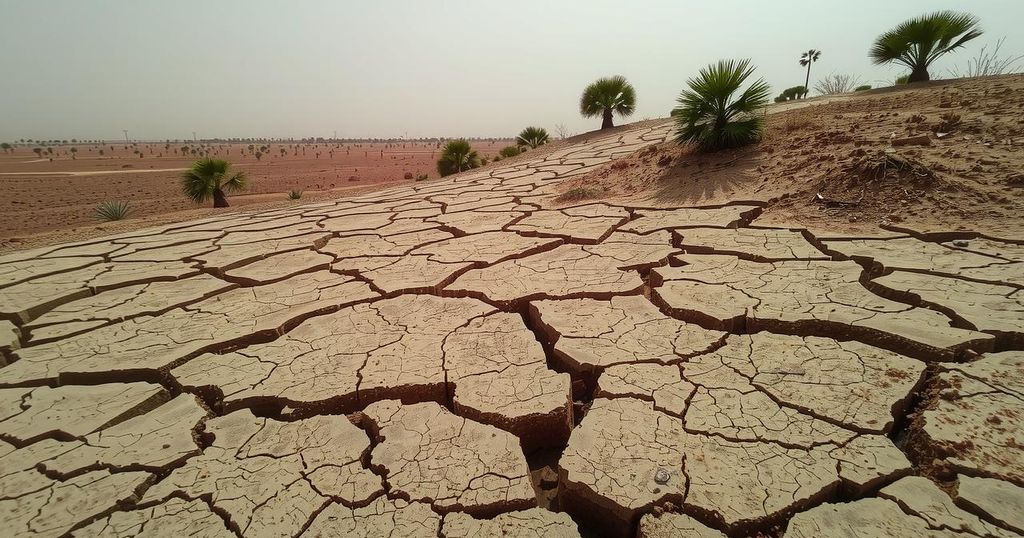Global news
AFRICA, AMERICA, ASIA, BIDEN, CIVIL WAR, HUMANITARIAN AID, HUMANITARIAN CRISIS, KHARTOUM, MUSA, NICHOLAS KRISTOF, NORTH AMERICA, RAPID SUPPORT, RAPID SUPPORT FORCES, REFUGEE CRISIS, REFUGEES, SOUTH SUDAN, SUDAN, SUDANESE ARMY, TRUMP, UNICEF, UNITED ARAB EMIRATES, UNITED STATES
Marcus Li
0 Comments
The Aggravation of Sudan’s Humanitarian Crisis by U.S. Policies
Nicholas Kristof outlines the severe humanitarian crisis in Sudan, marked by famine, warfare, and atrocities termed genocide. U.S. humanitarian aid reductions, particularly under the Trump administration, have worsened conditions, leading to increased starvation and violence, particularly against children. Individual narratives from survivors emphasize the urgent need for intervention, while the actions of previous leaders demonstrate the potential for meaningful assistance that is lacking today.
Nicholas Kristof articulates the grave humanitarian crisis in Sudan, characterized by famine, civil conflict, and widespread atrocities, officially deemed genocide by the United States. The devastation has led to tens of thousands of fatalities and the displacement of 11 million individuals, with UNICEF highlighting alarming instances of violence against children. Observably, the reduction of humanitarian assistance under the Trump administration exacerbates the ongoing starvation and suffering in Sudan.
The situation is complicated by political inaction. Both the Trump and Biden administrations have refrained from addressing the role of the United Arab Emirates in supporting the Rapid Support Forces militia, accused of numerous atrocities. Kristof questions whether the U.S. leadership bears genuine concern for the plight of Sudanese citizens and suggests that personal narratives may prompt greater empathy and action.
Kristof recounts his visit to two areas along the Sudan-South Sudan border, where he interviewed refugees. Musa Ali, a former interior designer now confined to a wheelchair due to an army bomb, and Yassin Yakob, a teacher, described harrowing journeys marked by violence and starvation. These experiences underscore the human toll of the conflict, with many perishing from hunger while attempting to escape.
Humanitarian efforts in Sudan have suffered significant setbacks. Funding cuts by the Trump administration have led to the closure of over 70 percent of American-supported soup kitchens, resulting in tragic outcomes, including children’s deaths from starvation. The collapse of these facilities highlights the critical need for sustained humanitarian support to mitigate the crises.
Personal accounts from survivors like Manal Adam illustrate the persistence of violence and trauma in Sudan. Manal, a victim of assault, fled to a refugee camp in South Sudan, yet continues to suffer both physically and emotionally, grappling with the societal stigma surrounding her experiences. These stories collectively paint a picture of a deteriorating humanitarian situation marked by repeated cycles of violence.
The alarming conditions in the Zamzam refugee camp, besieged by the Rapid Support Forces, serve as a grave reminder of the urgent need for intervention. Despite the overwhelming nature of the crisis, Kristof emphasizes that passivity is not an acceptable response. Reflecting on past actions by the West that lessened suffering in the early 2000s, he argues that the current reduction in aid might be considered complicity in the atrocities taking place in Sudan.
In conclusion, the humanitarian crisis unfolding in Sudan represents one of the most pressing challenges of our time, exacerbated by cuts in humanitarian aid and international political inaction. With millions suffering from starvation, violence, and displacement, it is imperative for global powers to recognize and act against this crisis. The historical context of previous interventions highlights the urgent need for renewed commitment to alleviating suffering and protecting the rights of the vulnerable in Sudan.
Original Source: www.nytimes.com




Post Comment